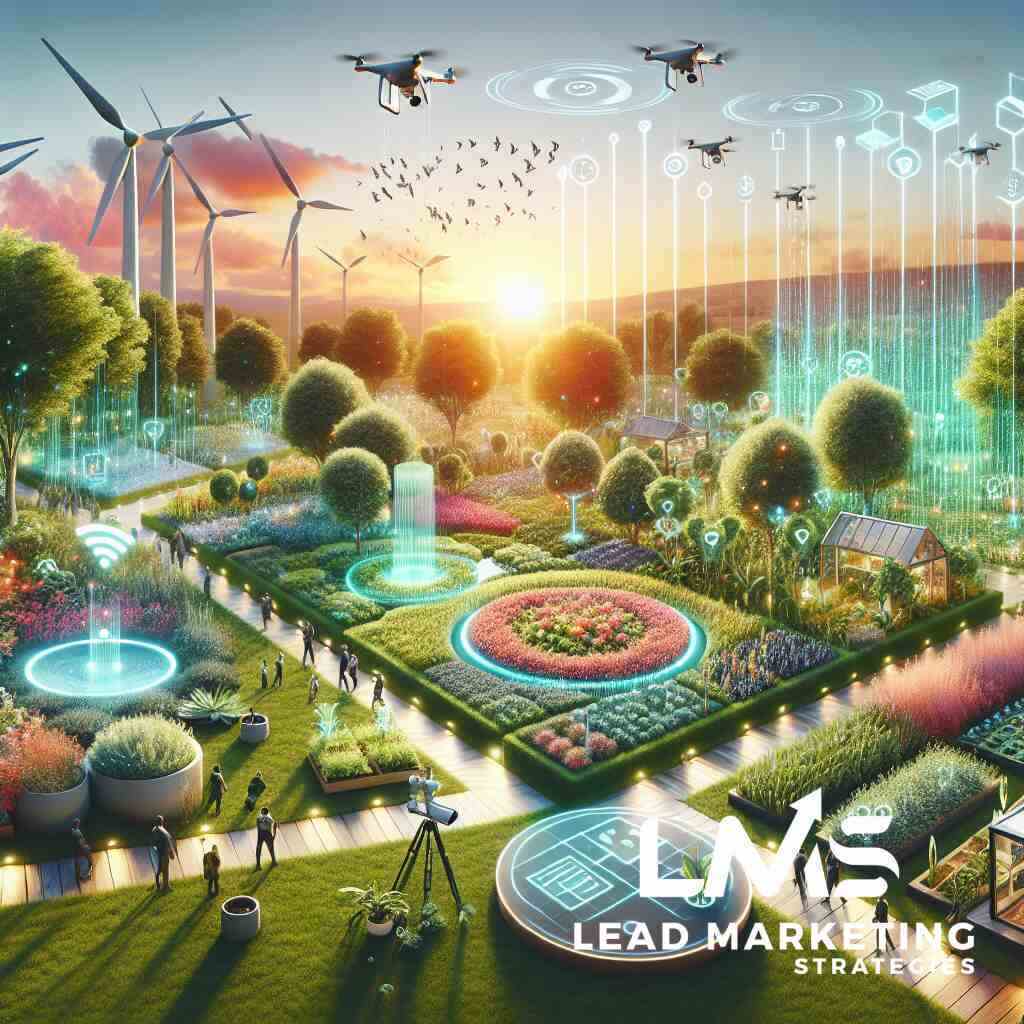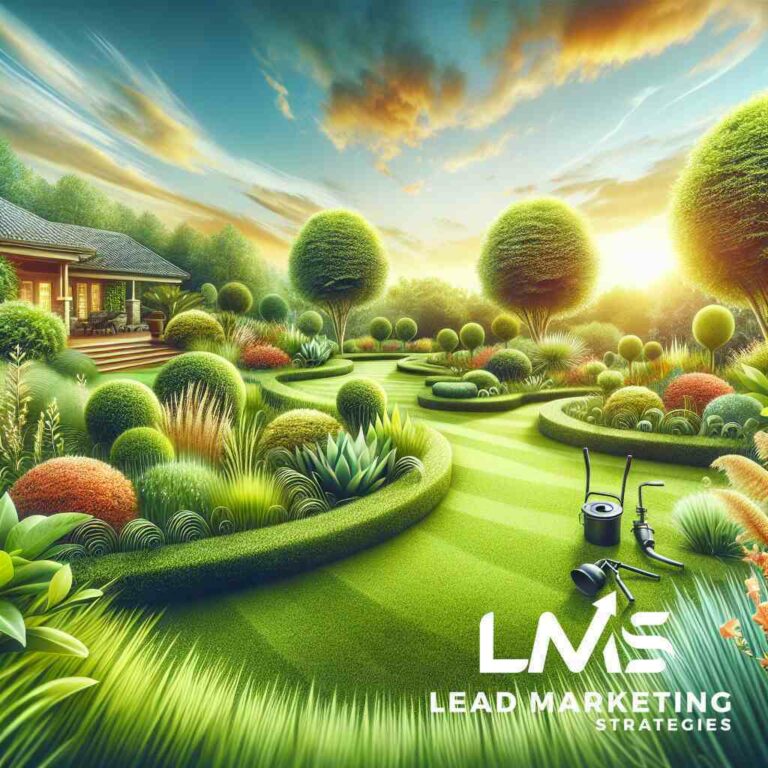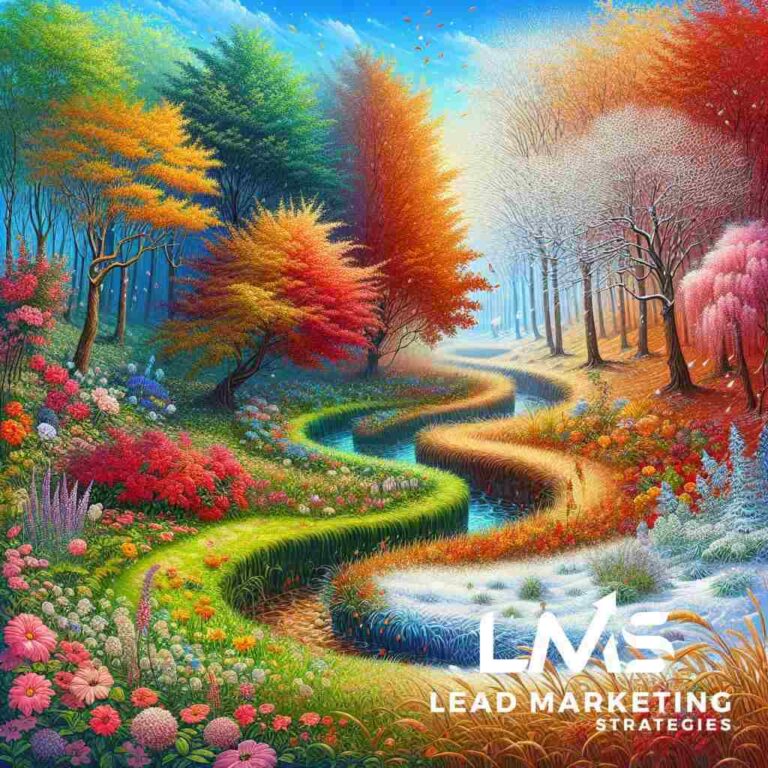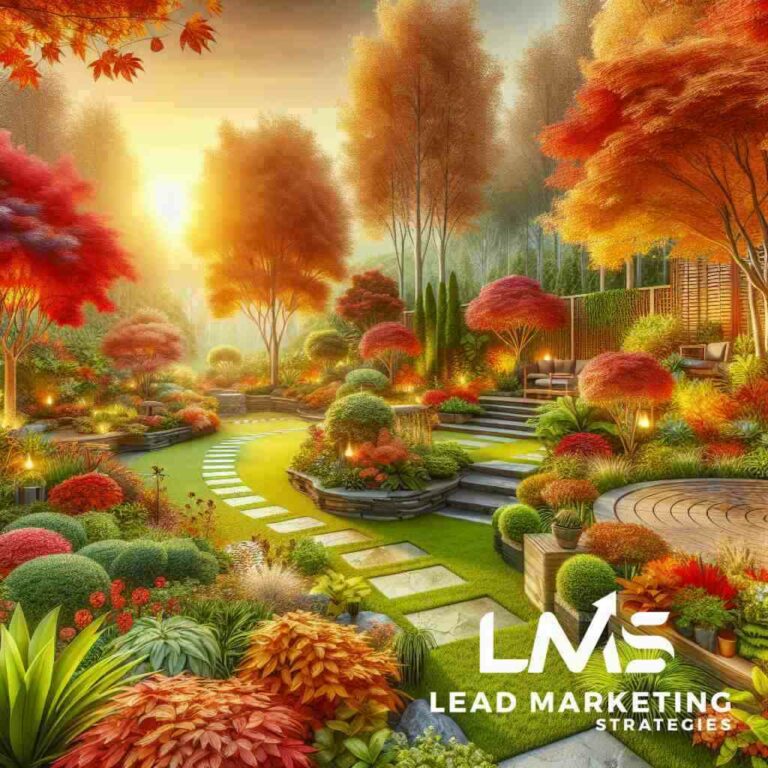Unveiling the Future of Landscaping Marketing
Introduction to the 2025 Landscape
As we step into Spring 2025, the landscaping industry finds itself at the cusp of a digital revolution. Landscaping marketing strategies in 2025 are evolving rapidly, harnessing the power of new technologies to transform traditional practices. With increased emphasis on sustainability and technological integration, landscapers are set to experience a paradigm shift. This change promises to redefine not only how services are marketed but also how customer engagements are structured. By embracing these advancements, landscaping professionals can unlock unprecedented opportunities to optimize their reach and impact.
Embracing Change in the Green Industry
The green industry is undergoing a metamorphosis as innovative marketing approaches become standard practice. Companies are actively integrating innovative garden design trends for 2025 to stay ahead in a competitive market. From climate-resilient gardens to state-of-the-art digital tools, the emphasis is on combining creativity with technology. This fusion ensures that services are delivered efficiently while keeping pace with environmentally friendly trends. As these changes gain momentum, landscapers must adapt and evolve to maintain their relevance in the modern landscape.
Innovative Marketing Strategies for Landscapers
To thrive in this dynamic environment, landscaping professionals must adopt cutting-edge marketing strategies tailored to their needs. With the rise of AI and automation, AI-driven lawn care marketing techniques are revolutionizing how services are promoted and delivered. Predictive analytics and augmented reality are further enhancing how businesses approach SEO and customer engagement. By focusing on these innovations, landscapers can create more personalized and effective marketing campaigns. This approach not only attracts new customers but also strengthens existing relationships, thereby ensuring long-term success.
Redefining Modern Landscaping through Technology
AI-Driven Lawn Care Marketing
In the rapidly evolving landscape industry, AI-driven lawn care marketing techniques are streamlining both the promotion and delivery of services. By analyzing vast amounts of data in real-time, AI enables landscapers to tailor marketing efforts to target specific customer needs and preferences. This personalized approach not only enhances customer satisfaction but also builds lasting client relationships. Adopting AI tools allows landscaping businesses to automate routine tasks and focus more on creative and strategic endeavors. As landscapers begin integrating AI, they pave the way for innovative service delivery models that meet the unique demands of 2025’s consumers.
The Role of Predictive Analytics in Landscaping SEO
Predictive analytics in lawn care services plays a pivotal role in shaping advanced SEO strategies. By forecasting future trends and customer behavior, landscapers can optimize their digital presence to attract more targeted traffic. Utilizing predictive analytics helps professionals anticipate client needs, thereby crafting web content that resonates with their audience. This forward-looking approach ensures that landscapers maintain a competitive edge in a rapidly shifting market, detailed in Exploring the Impact of SEO in Landscaping Marketing Tactics. By leveraging these insights, companies can develop robust SEO strategies that drive growth and enhance visibility in search engine results.
Exploring Augmented Reality in Garden Design
The integration of augmented reality in landscaping design offers transformative possibilities for garden designers and their clients. By overlaying digital enhancements in real-time, AR allows for immersive previews of proposed garden plans, enabling clients to visualize potential outcomes before execution. This technological advancement not only boosts client engagement but also reduces the likelihood of costly design changes. As AR technology becomes more mainstream, it empowers landscape professionals to offer interactive and immersive experiences that captivate clients and differentiate their services from the competition.
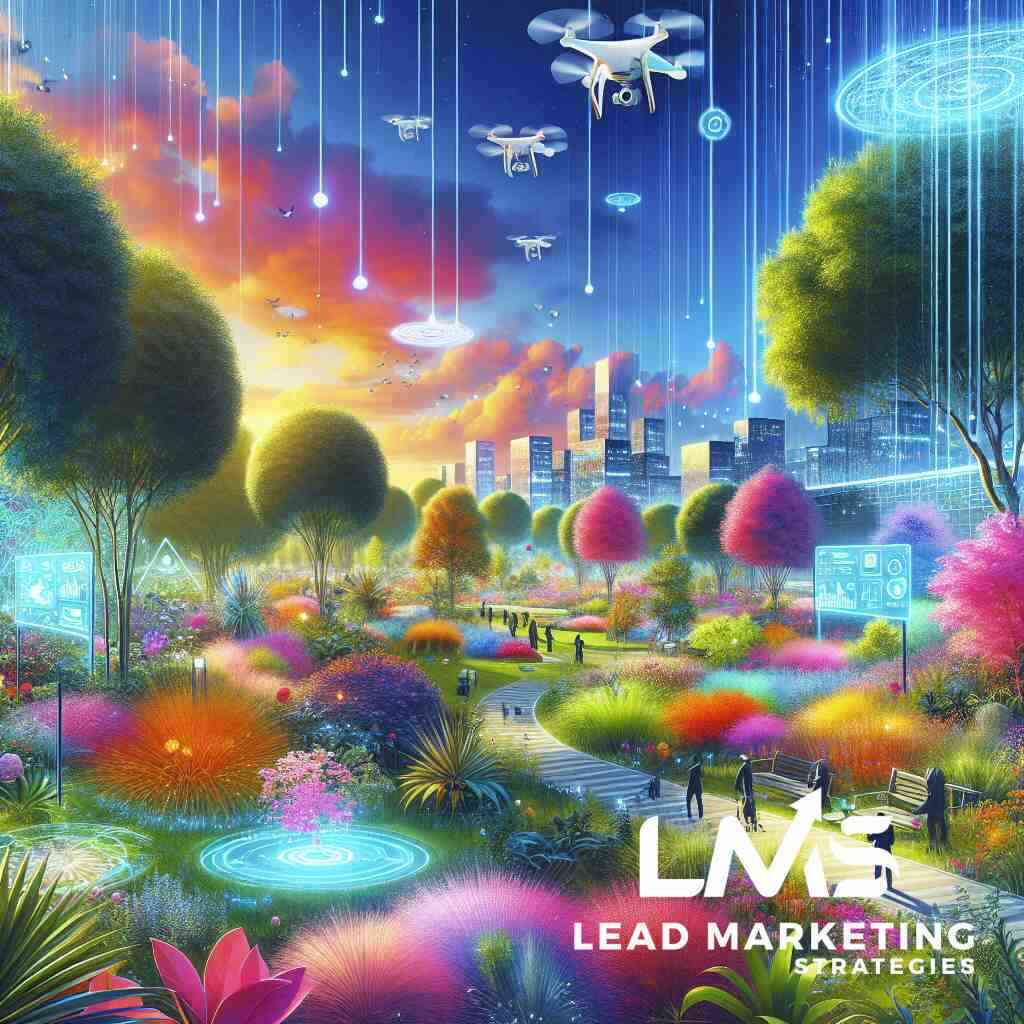
Sustainable and Eco-Friendly Marketing Approaches
Eco-Friendly Garden Marketing Strategies
As the demand for sustainable practices grows, eco-friendly garden marketing strategies are becoming a linchpin for landscapers. Emphasizing the environmental benefits of organic mulch and pesticide-free plants appeals to the environmentally-conscious consumer. By utilizing eco-friendly marketing strategies for gardens, businesses can highlight their commitment to sustainability, which resonates deeply with modern consumers. Additionally, incorporating native plants not only minimizes environmental impact but also reduces maintenance costs – an attractive feature for clients looking to embrace green living.
Engaging customers through virtual tours of sustainable gardens can enhance digital interaction. These tours provide an immersive experience that educates customers on sustainable gardening benefits. Coupled with effective social media campaigns, this approach strengthens brand visibility and positions businesses as industry leaders in sustainability.
Promoting Sustainable Landscape Architecture
Landscaping professionals are at the forefront of promoting sustainable landscape architecture by integrating eco-friendly designs. Utilizing permaculture principles and low-water landscaping aligns with sustainable landscape architecture SEO methods, attracting eco-conscious clients seeking out services that blend innovation with environmental responsibility.
By optimizing websites for relevant keywords such as ‘xeriscape garden design’ and ‘permeable paving’, companies not only improve their SEO but also educate potential clients about sustainable options. Collaborations with green architects create synergy, offering comprehensive, eco-friendly solutions. This kind of partnership not only broadens service offerings but also enhances credibility and trust with potential and existing clients.
Climate-Resilient Gardening and Its Influence on Marketing
The increasing impact of climate change has driven the innovation of climate-resilient gardens that withstand extreme weather conditions. Marketing these resilient designs helps companies cater to consumers looking for reliable and lasting outdoor solutions. Implementing drought-resistant plants and intelligent irrigation systems is just a few strategies being marketed to address client concerns about climate volatility.
Communicating the long-term cost-efficiency and environmental benefits of climate-resilient gardens through engaging content can improve brand positioning. As these techniques take center stage, they influence digital marketing for landscapers. Informative blog posts and customer success stories showcasing these gardens demonstrate real-world applications and provide pivotal knowledge that can inspire hesitant clients to make the switch to more sustainable and resilient landscaping solutions.
Harnessing Digital Innovations for Landscapers
Virtual Landscaping Consultations
In the digital age, virtual landscaping consultations have emerged as a game-changer for the landscaping industry. By utilizing video conferencing tools, landscapers can connect with clients across vast distances, ensuring that no opportunity is missed due to geographical limitations. This digital approach not only saves time but also reduces overhead costs associated with travel and on-site visits. Moreover, virtual consultations allow landscapers to share digital sketches and plans in real-time, enhancing client understanding and engagement. As technology advances, incorporating virtual consultations will become an essential part of mobile-first landscaping marketing strategies, ensuring landscapers remain competitive and relevant in 2025.
Interactive and Immersive Web Design
To attract and retain clients, landscapers must leverage interactive and immersive web design techniques. These designs incorporate elements such as 3D renderings and interactive plant databases, allowing customers to explore potential landscaping designs vividly. Such immersive experiences engage visitors on a deeper level, transforming passive browsing into an active exploration of services. Additionally, incorporating interactive garden design advertising innovations like virtual walkthroughs further captivates and informs potential clients, leading to higher conversion rates. As the digital realm continues to dominate marketing strategies, refining web design will be pivotal for businesses looking to stand out in a crowded online marketplace.
Smart Home Integration and Landscape Lighting
The rise of smart technologies has opened new avenues for landscaping professionals, particularly in the realm of smart home integration and landscape lighting. These innovations allow clients to control their garden environments effortlessly through smartphones or voice-activated devices. Smart irrigation systems and energy-efficient lighting setups provide added convenience and sustainability, appealing to tech-savvy and eco-conscious consumers alike. As this technology becomes more pervasive, landscapers equipped with the know-how to integrate these systems will gain a competitive edge. By embracing smart home integration in the landscape, businesses can offer cutting-edge solutions that blend outdoor aesthetics with modern technological conveniences, setting themselves apart in the evolving landscape market.
Engaging with the Community through Green Initiatives
Community-Driven Green Space Promotion
In Spring 2025, landscapers are prioritizing community-driven green space promotion as a core element of their marketing strategies. This approach not only encourages community engagement but also fosters a sense of ownership among local residents, boosting participation in greening activities. By utilizing community-driven green space promotion techniques, landscapers can organize workshops and events that educate community members about the benefits of sustainable landscaping. Collaborating with local schools and community centers amplifies these efforts, transforming passive audiences into active participants in green initiatives. Such strategies inherently strengthen the landscaper’s brand presence within the community, showcasing their commitment to environmental stewardship and local development.
Gamification in Lawn Care Branding
Gamification is transforming lawn care branding by making the process interactive and engaging for consumers. Introducing game-like elements into marketing campaigns can incentivize customers to engage more deeply with a brand’s services. Implementing point systems or rewards for sustainable actions, such as opting for organic lawn treatments or participating in community clean-up events, creates enthusiasm and loyalty among clients. By infusing fun and competition into lawn care branding, landscapers can tap into the consumer’s desire for playful engagement, ultimately enhancing brand perception and client retention. Such inventive approaches differentiate a company in a saturated market, appealing particularly to tech-savvy and young demographics eager for unique experiences.
Building Relationships with Local SEO Strategies
Localized SEO strategies are critical in building strong client relationships in the landscaping sector. Focusing on keywords relevant to regional services helps landscapers attract clients looking for nearby expertise. Tailoring content to include phrases like landscaper marketing strategies near California and other specific locales personalizes the browsing experience for potential clients. Moreover, optimizing Google My Business profiles ensures that companies appear in local searches, increasing visibility among geographically targeted audiences. Encouraging satisfied clients to leave positive reviews online enhances a landscaper’s reputation, fostering trust and loyalty. By integrating these localized SEO efforts, landscaping businesses can sustainably grow their customer base and fortify their position within the community.
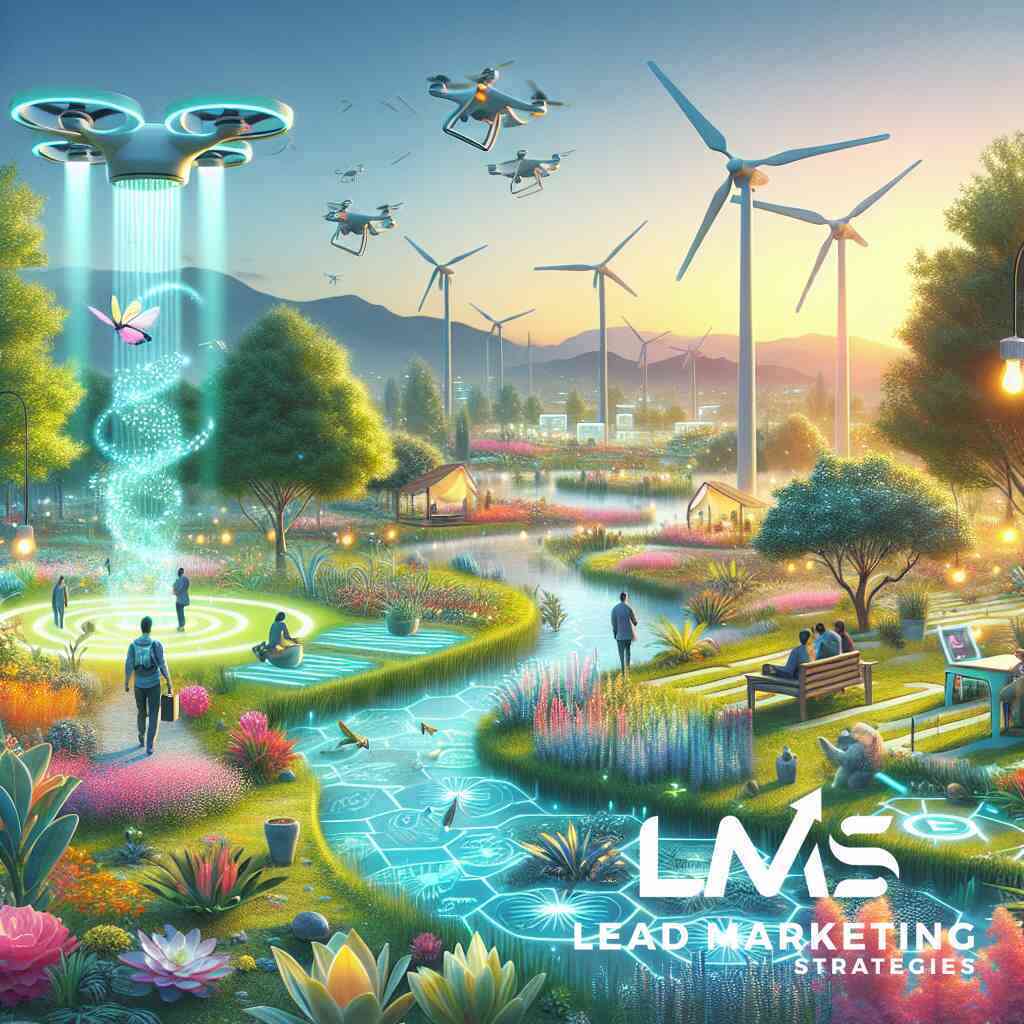
Closing the Loop on Landscaping Marketing Evolution
Integrating Technology and Nature
As the synergy between technology and nature deepens, the future of landscaping marketing is set to thrive on this integration. For landscapers, blending tech innovations like integrating technology and nature into daily operations can transform client interactions. Smart irrigation systems, drone technology, and 3D visualization tools are no longer peripheral. They are integral to offering efficient, eco-friendly, and visually captivating services. By marrying tech and nature, landscaping businesses not only enhance service delivery but also align with consumer demands for sustainable and aesthetically pleasing environments.
The Future Impact of Landscaping Marketing Changes
The advancements in landscaping marketing strategies will significantly shape the industry’s landscape throughout 2025 and beyond. These changes are expected to foster increased engagement and loyalty among customers. By leveraging cutting-edge tactics such as augmented reality and predictive analytics, landscapers can provide personalized and immersive experiences that were previously unimaginable. Companies embracing these innovations are likely to see an uptick in clientele, as they offer pioneering solutions that stand out in a competitive market, as outlined in The Ultimate Guide to Landscaping Marketing Strategies 2025. Moreover, the adaptability of these techniques will ensure businesses can swiftly maneuver future market shifts, securing their longevity and success.
Final Thoughts on 2025 Strategy Deployment
As we look towards the future, deploying 2025 strategies in landscaping marketing requires commitment and vision. Companies must be ready to embrace change, adopting new practices that might initially seem daunting. However, the expansive opportunities that emerge from embracing these changes far outweigh any initial challenges. By employing strategies that harness innovation and sustainability, businesses can lay the groundwork for sustained growth and enhanced brand reputation. With a commitment to these dynamic strategies, landscapers are well-equipped to not only thrive in 2025 but also shape the industry’s future direction.
Frequently Asked Questions
Question: How can AI-driven lawn care marketing enhance the customer experience in Spring 2025 landscaping trends?
Answer: AI-driven lawn care marketing is revolutionizing the industry by offering highly personalized experiences to customers. By leveraging advanced data analytics, AI tools can predict customer preferences and tailor marketing efforts, ensuring landscapers meet specific client needs efficiently. This targeted approach not only increases customer satisfaction but also strengthens client relationships. With AI, landscaping professionals can automate routine tasks, freeing up time for creative and strategic endeavors. This enhances service delivery and positions businesses to thrive amidst the dynamic Spring 2025 landscaping trends.
Question: How do virtual landscaping consultations fit into the mobile-first landscaping marketing strategies?
Answer: Virtual landscaping consultations are an integral component of mobile-first landscaping marketing strategies, offering significant advantages in terms of accessibility and efficiency. By using video conferencing tools, landscapers can overcome geographic barriers, connecting with clients regardless of location. This digital approach not only reduces overhead costs but also facilitates real-time sharing of digital sketches and plans, boosting client understanding and engagement. As the digital landscape evolves, virtual consultations will remain crucial for landscapers aiming to maintain a competitive edge and provide exemplary customer service in 2025.
Question: What role does immersive landscaping web design play in the future of landscaping SEO?
Answer: Immersive landscaping web design is pivotal to the future of landscaping SEO by enhancing user engagement and improving search engine rankings. By incorporating elements like 3D renderings and interactive plant databases, landscapers can provide potential clients with vivid and informative browsing experiences. This approach not only keeps visitors on the site longer, reducing bounce rates, but also encourages higher conversion rates. By aligning websites with advanced SEO techniques and innovative design, landscaping businesses will improve their online visibility in search engine results, ensuring sustained growth and competitiveness.
Question: How are sustainable landscape architecture SEO methods influencing the marketing strategies outlined in the blog ‘Spring 2025: Landscaping Marketing Strategies Unveiled’?
Answer: Sustainable landscape architecture SEO methods are a cornerstone of the marketing strategies discussed in the blog ‘Spring 2025: Landscaping Marketing Strategies Unveiled.’ By focusing on eco-friendly designs and practices, landscaping businesses can appeal to the growing number of environmentally-conscious consumers. Using relevant keywords like xeriscape garden design and permeable paving in SEO strategies not only enhances online visibility but also educates clients on sustainable options. This holistic approach to marketing ensures companies remain at the forefront of industry trends, fostering long-term client relationships based on trust and shared values.
Question: How does gamification in lawn care branding align with cutting-edge horticulture marketing strategies?
Answer: Gamification in lawn care branding effectively aligns with cutting-edge horticulture marketing strategies by creating engaging and interactive customer experiences. By incorporating game-like elements into marketing campaigns, such as point systems or rewards for sustainable actions, landscapers can foster customer loyalty and enthusiasm. These innovative approaches appeal especially to younger, tech-savvy demographics seeking unique brand interactions. By utilizing gamification, landscaping businesses can differentiate themselves in a crowded market while promoting eco-friendly practices, thereby aligning with modern horticulture marketing strategies.
